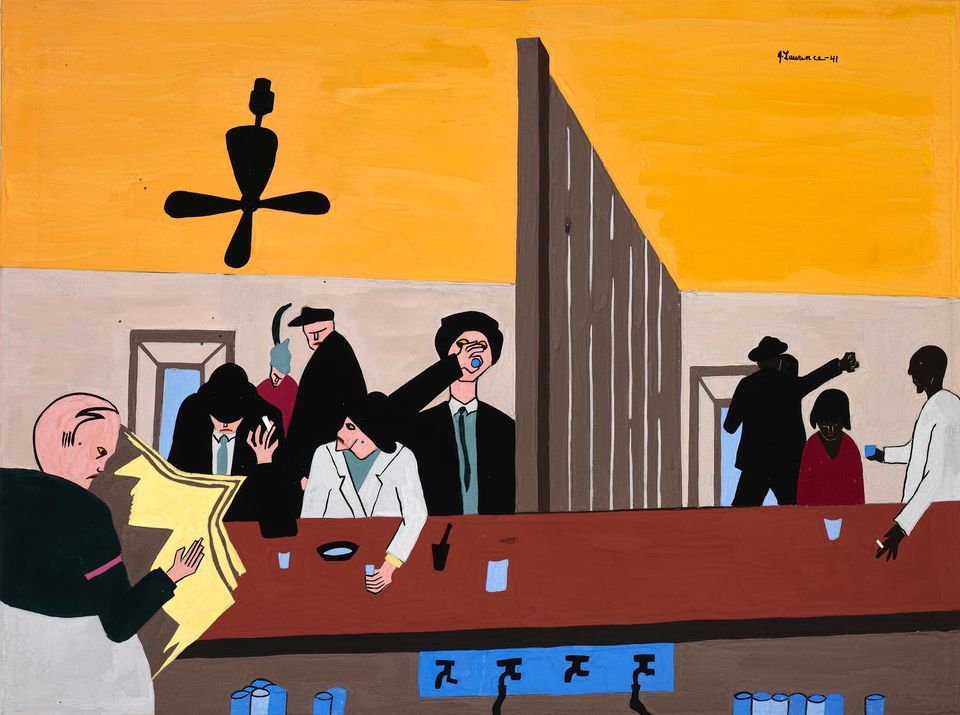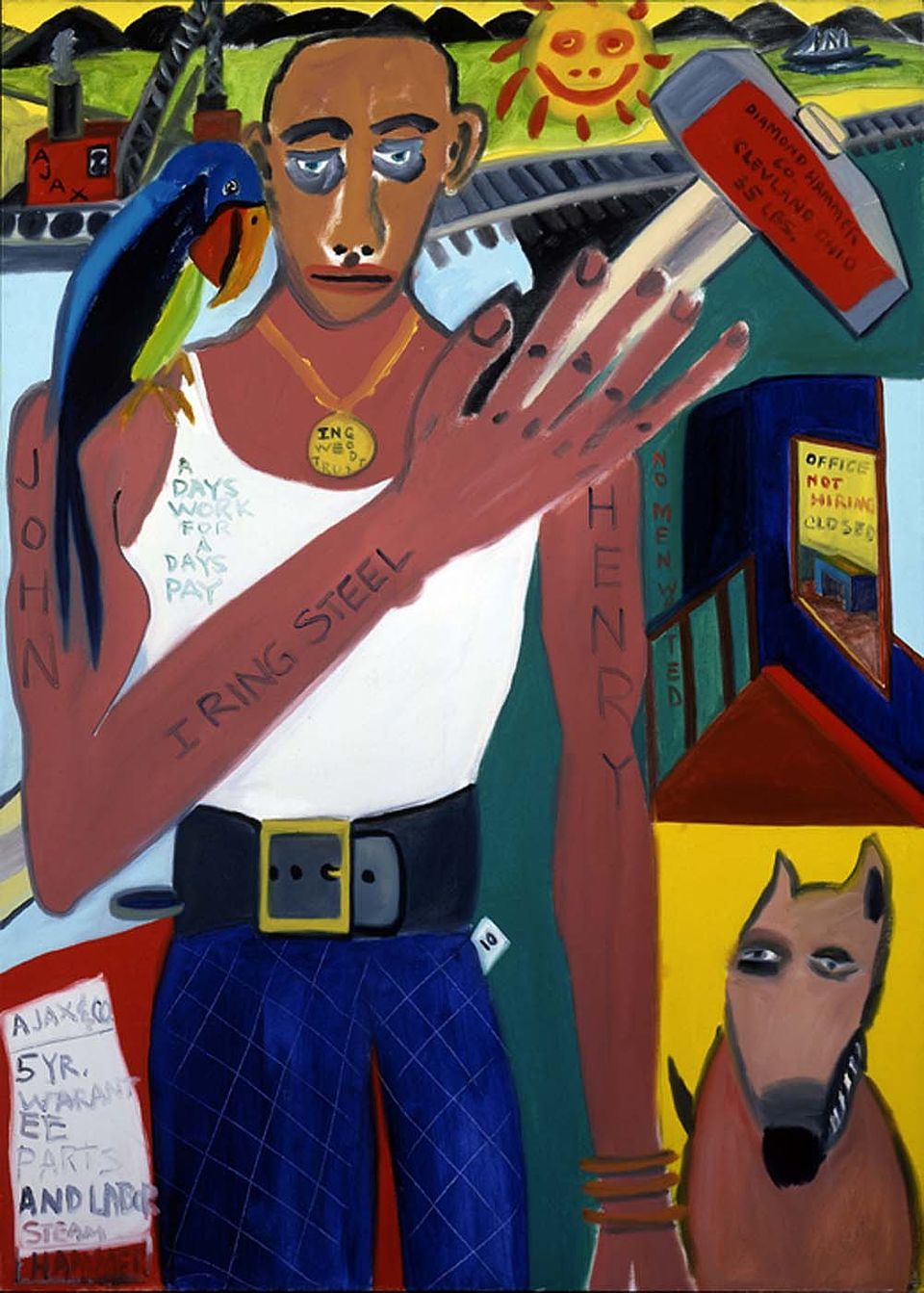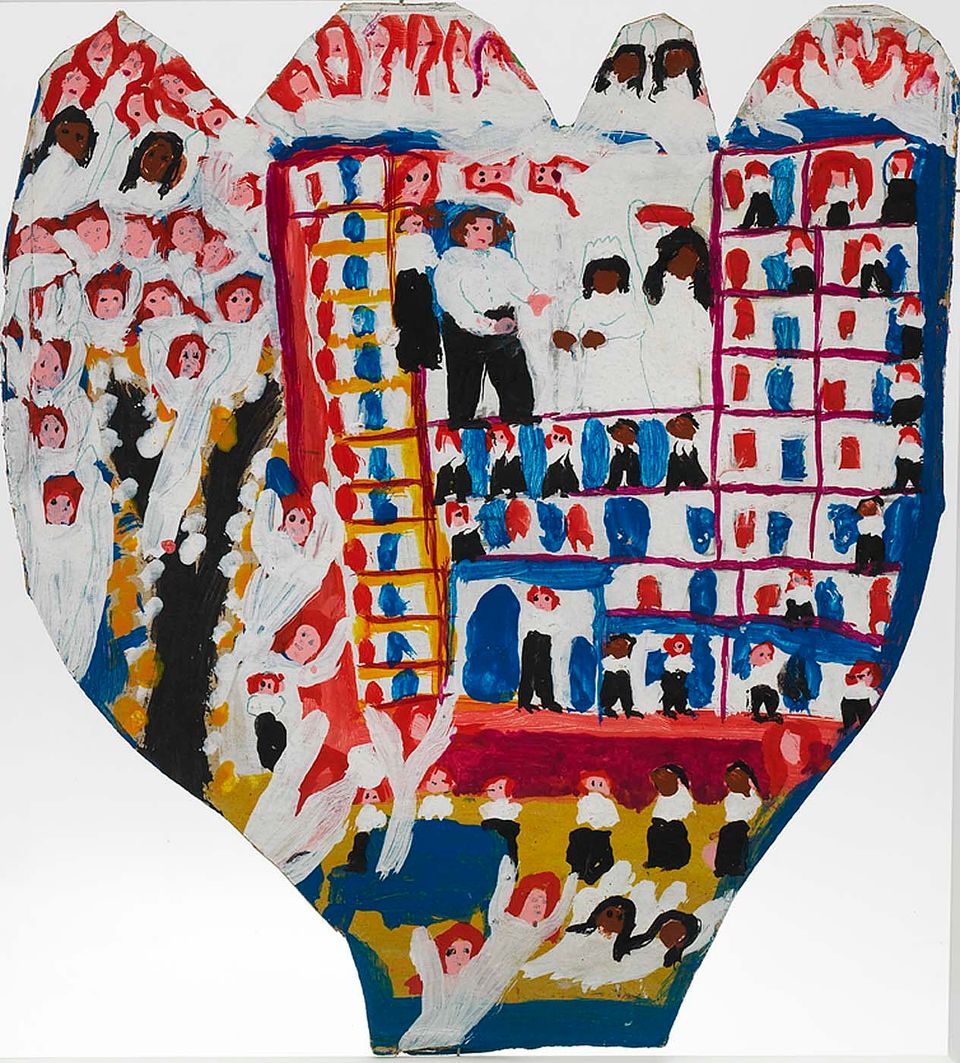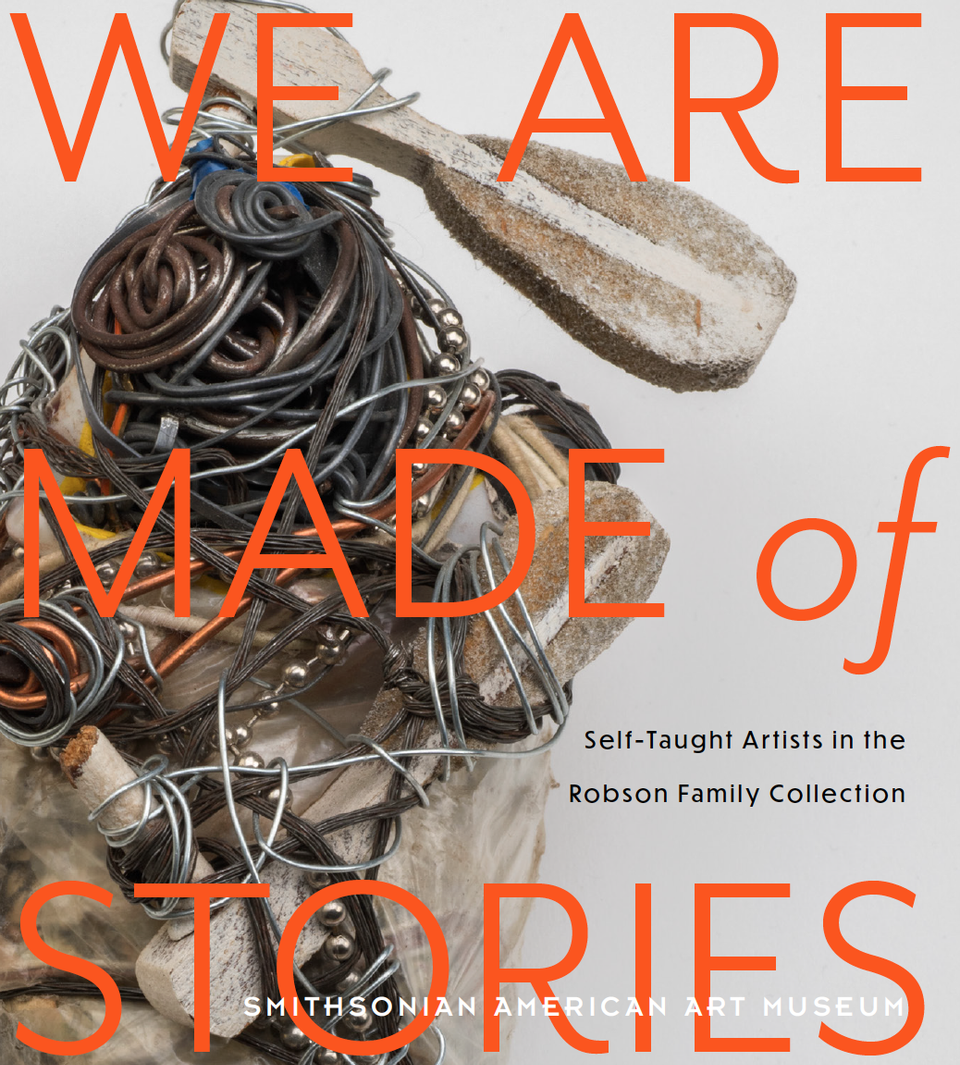Thornton Dial, Sr.
- Biography
Thornton Dial was born into a sharecropping family in rural Alabama, on the eve of the Great Depression. He experienced the trauma and tumult of both Jim Crow segregation and the civil rights movement. Profoundly influenced by Dr. Martin Luther King Jr., Dial used art to confront issues of racial oppression in the United States, developing an allegorical style that was abstracted but narrative, conveying concerns both personal and universal. His large, bold works, with incisive titles and themes of race and class, captivated the art world through sophisticated content and an aesthetic that defied stereotypes of “folk.” Dial bridged the worlds of Black vernacular self-taught artists and the contemporary mainstream. He was a conduit between nineteenth-century-born artists like Bill Traylor; African American quilters who had, for too long, gone unrecognized as artists; and a younger generation of Black creatives seeking a way forward.
Dial lived to see his work acquired by some of the most revered museums in the United States and became relevant to the mainstream art world in unprecedented ways. As the art world increasingly embraced him, Dial used his voice to raise serious questions about its long-standing hierarchies and inequities. He became emblematic of a shifting southern landscape in the late twentieth and early twenty-first centuries—as the deeply rooted vision of Black Americans revealed its tremendous power.
(We Are Made of Stories: Self-Taught Artists in the Robson Family Collection, 2022)


















